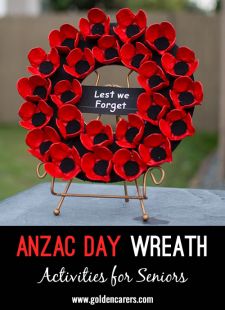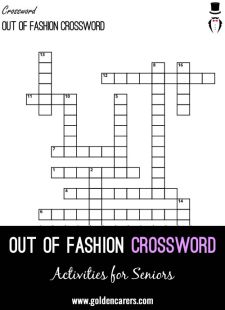3 Activities
18 Comment
Nikki Weir  19th Sep 2023
Day Centre Coordinator
19th Sep 2023
Day Centre Coordinator
 19th Sep 2023
Day Centre Coordinator
19th Sep 2023
Day Centre Coordinator
A new activity has been posted by a Golden Carers member: Too many Lemons Quiz
Nikki  14th Feb 2023
Day Centre Coordinator
14th Feb 2023
Day Centre Coordinator
 14th Feb 2023
Day Centre Coordinator
14th Feb 2023
Day Centre Coordinator
Digital vs. Paper: How To Best Communicate With Residents
I email our quarterly newsletter to families and the few guests who use digital means of communication. I always get enough printed copies for all guests though as even the ones who have read their email like to have the paper copy. I'm guessing this is due to a mix of memory loss and lack of comfort with digital means.
Texting rather than phone calls work for some with hearing loss who are comfortable with that function on their smartphone. This is just those last minute changes due to a storm or a reminder that their session is today.
Texting rather than phone calls work for some with hearing loss who are comfortable with that function on their smartphone. This is just those last minute changes due to a storm or a reminder that their session is today.
Nikki  21st Dec 2022
Day Centre Coordinator
21st Dec 2022
Day Centre Coordinator
 21st Dec 2022
Day Centre Coordinator
21st Dec 2022
Day Centre Coordinator
Thank you, this is just what I needed to hear amongst the brain fog as I juggle everything.
Wishing us all a safe and healthy festive season!
Wishing us all a safe and healthy festive season!
Nikki  18th Oct 2022
Day Centre Coordinator
18th Oct 2022
Day Centre Coordinator
 18th Oct 2022
Day Centre Coordinator
18th Oct 2022
Day Centre Coordinator
How To Structure Reminiscing Sessions For Seniors
A children's birthday party theme worked really well in New Zealand where it's been traditional to hold these parties at home with mostly home cooked food. We have a couple of famous recipe books so I started with those and added cake decorating utensils, candles, serviettes, straws, an invitation, photos of children at a party, gift wrap paper, ribbons and anything else to do with a party. I laid it all out on a table covered in paper which the participants could write their favourite party food on. We talked about the games played, the advent of the goody bag, costume parties and even those held at a fast food place. We brought the men into it by asking about their role - blowing up the balloons, putting up shelter etc. An hour passed very quickly!
Nikki  11th Oct 2022
Day Centre Coordinator
11th Oct 2022
Day Centre Coordinator
 11th Oct 2022
Day Centre Coordinator
11th Oct 2022
Day Centre Coordinator
We give the winner (most fish) a chocolate marshmallow fish and the person who caught the least fish gets a chocolate frog.
Nikki  3rd Aug 2022
Day Centre Coordinator
3rd Aug 2022
Day Centre Coordinator
 3rd Aug 2022
Day Centre Coordinator
3rd Aug 2022
Day Centre Coordinator
8 Creative Ways to Use an iPad in Nursing Home Settings
I use my iPad to turn my voice into words for someone who is completely deaf. As this only happened in her nineties the guest doesn't have an established alternative way to communicate. If I make a new note and only use the heading area, which is in bold type, she is able to read what I've just said. This makes her feel much more included in our group activities.
Nikki  11th Apr 2022
Day Centre Coordinator
11th Apr 2022
Day Centre Coordinator
 11th Apr 2022
Day Centre Coordinator
11th Apr 2022
Day Centre Coordinator
A new activity has been posted by a Golden Carers member: ANZAC Day wreaths
Nikki  5th Apr 2022
Day Centre Coordinator
5th Apr 2022
Day Centre Coordinator
 5th Apr 2022
Day Centre Coordinator
5th Apr 2022
Day Centre Coordinator
Also this month, for Australians and New Zealanders: ANZAC Day wreaths. Use 2-3 egg cartons per wreath, painting each segment after cutting it from the carton. Black felt, buttons or similar are glued to the centre before attaching to the circle of cardboard, once the paint is dry.






 United States
United States
Out of Fashion Crossword